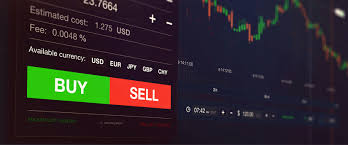Notice: Trying to access array offset on value of type bool in /var/www/vhosts/colposcopia.org.br/app.colposcopia.org.br/wp-content/themes/betheme/functions/theme-functions.php on line 1478
Notice: Trying to access array offset on value of type bool in /var/www/vhosts/colposcopia.org.br/app.colposcopia.org.br/wp-content/themes/betheme/functions/theme-functions.php on line 1483
Sblocca Emozioni Vincenti e Scommesse Live 22bet login è la Tua Chiave per un Divertimento Senza Lim
30/10/2025Вне доступа блокировок играйте в любимые слоты и рулетку с лицензией Curaçao (OGL20245870621) исполь
30/10/2025Forex Trading vs Stock Trading Key Differences and Insights 1720002250
Notice: Trying to access array offset on value of type bool in /var/www/vhosts/colposcopia.org.br/app.colposcopia.org.br/wp-content/themes/betheme/functions/theme-functions.php on line 1478
Notice: Trying to access array offset on value of type bool in /var/www/vhosts/colposcopia.org.br/app.colposcopia.org.br/wp-content/themes/betheme/functions/theme-functions.php on line 1483

Forex Trading vs Stock Trading: Key Differences and Insights
When it comes to investment opportunities, both forex trading vs stock trading Top Trading Platforms in forex trading and stock trading offer unique advantages and challenges. Understanding these differences can help traders and investors make informed decisions when choosing where to allocate their capital. In this article, we will explore the key aspects of both markets, including their structure, trading hours, regulation, leverage, and strategies.
Market Structure
The forex market, or foreign exchange market, is a decentralized global market for currencies. It operates 24 hours a day, five days a week, allowing traders to buy and sell currency pairs. Major currency pairs include EUR/USD, GBP/USD, and USD/JPY. The forex market is the largest financial market in the world, with a daily trading volume exceeding $6 trillion.
Conversely, the stock market is a centralized marketplace where shares of publicly traded companies are bought and sold. Stock exchanges, such as the New York Stock Exchange (NYSE) and the Nasdaq, facilitate these transactions. Stock market trading hours are typically limited to weekdays, ranging from 9:30 AM to 4:00 PM EST in the U.S., with some after-hours trading available.
The decentralized nature of forex trading allows for greater flexibility and accessibility, while the centralized structure of stock trading provides regulatory oversight and transparency.
Trading Hours

Forex trading hours are one of its most attractive features. As mentioned earlier, the forex market operates 24/5, allowing for trading at any time of the day or night. This flexibility enables traders to react to global events and market news as they happen, creating opportunities outside regular business hours.
On the other hand, stock markets have fixed trading hours. This limitation can hinder traders’ ability to respond to significant events that occur after the market closes. However, some stock exchanges offer after-hours trading sessions, though these often come with reduced liquidity and higher volatility.
In summary, if you’re looking for increased flexibility and around-the-clock access, forex trading may be the better option. However, if you prefer a more structured environment with defined trading hours, stock trading might be more suitable.
Leverage and Margin
One of the most significant differences between forex and stock trading is the level of leverage available. In the forex market, brokers often offer high leverage, sometimes up to 100:1 or even 500:1, which means that traders can control large positions with a relatively small amount of capital. While high leverage can amplify profits, it also increases the risk of significant losses.
In contrast, stock trading generally allows for lower leverage, often around 2:1 or 4:1 for day trading. This lower leverage means that traders are required to put up a larger amount of capital relative to their trades. While this can be seen as a safer approach, it limits the potential for high returns compared to forex trading.
When considering leverage, it’s essential to assess your risk tolerance and trading strategy. High leverage can be enticing, but it requires careful risk management to avoid devastating losses.
Regulation
Regulation is a crucial aspect of trading in any market. Forex trading is overseen by various regulatory bodies worldwide, including the Commodity Futures Trading Commission (CFTC) in the U.S., the Financial Conduct Authority (FCA) in the U.K., and the Australian Securities and Investments Commission (ASIC) in Australia. However, the decentralized nature of forex trading means that regulatory practices can vary significantly between countries and brokers.

In contrast, stock markets tend to be more heavily regulated. Stock exchanges are subject to strict rules that govern trading practices, reporting requirements, and investor protection. For example, in the U.S., the Securities and Exchange Commission (SEC) regulates the stock market to ensure that companies disclose accurate information to investors.
While the regulatory landscape of the stock market may provide a greater sense of security and transparency, the forex market’s less centralized system can offer flexibility and diverse trading opportunities. It’s essential for traders to conduct due diligence and choose regulated brokers regardless of the market they trade in.
Trading Strategies
Different trading strategies are employed in forex trading and stock trading, reflecting the unique characteristics of each market. In forex trading, strategies often focus on short-term trading, such as scalping and day trading. Traders frequently analyze technical indicators, price action, and economic news releases to make quick decisions.
On the other hand, stock trading strategies can range from short-term approaches, like day trading and swing trading, to long-term strategies, such as value investing and dividend investing. Long-term investors typically focus on the fundamentals of companies, analyzing financial statements, management team, and market competition to identify stocks that have growth potential.
Both markets provide opportunities for technical and fundamental analysis; however, the specific techniques and indicators may differ based on market behavior and trends. Traders should choose strategies that align with their trading goals, time commitment, and risk tolerance.
Conclusion
In conclusion, both forex trading and stock trading have their unique sets of advantages and challenges. Forex trading offers flexibility, high leverage, and 24/5 access, making it attractive for traders who seek real-time opportunities. Stock trading, with its regulatory oversight and structured environment, appeals to investors who prioritize stability and long-term growth.
Ultimately, the choice between forex trading and stock trading depends on individual goals, risk tolerance, and preferred trading styles. Regardless of the market you choose, constant learning and effective risk management will be key to achieving success in the financial world.

